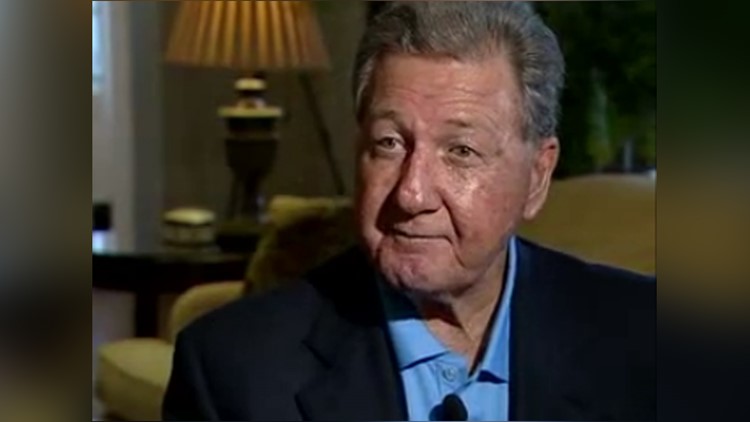One of the true giants of the LSU universe has died at the age of 80.
Billy Cannon, the only LSU player to ever win the Heisman Trophy, died peacefully at his family home on Sunday morning, the University confirmed.
Born in Mississippi but raised in Baton Rouge, Cannon led LSU to its only undefeated season en route to the 1958 National Championship and won the Heisman Trophy in 1959. He was inducted into the LSU Athletic Hall of Fame in 1975 and into the College Football Hall of Fame in 2008.
In his three-year career from 1957-59, Cannon rushed for 1,867 yards on 359 carries and scored 24 rushing touchdowns. He also caught 31 passes for 522 yards and two touchdowns. An all-purpose player who was also a defensive standout, Cannon returned 31 punts for 349 yards and 21 kickoffs for 616 yards in his career, punted 111 times for an average of 36.7 yards a punt and intercepted seven passes. He also completed 12 of 26 pass attempts for 121 yards.
Cannon would’ve been a freakish athlete in any era, but his combination of size, speed and power were practically unheard of in the times he played in. His Halloween Night punt return against Ole Miss in 1959 practically synched the Heisman and etched his name in college football lore.
Because of those electrifying abilities, Cannon was selected No. 1 overall in both the NFL and AFL drafts in 1960, ultimately playing a 10-year career with the Houston Oilers, Oakland Raiders and Kansas City Chiefs.
LSU retired Cannon’s No. 20 jersey decades ago, and last summer the school announced plans to erect a statue on campus honoring Cannon. The LSU Athletic Hall of Fame Committee unanimously approved the proposal last August.
“There is no player more synonymous with LSU football than Billy Cannon,” said Bill Demastes, LSU faculty athletics representative and Athletic Hall of Fame Committee Chair. “His ability on a football field made him a legend and the decision to honor him as such was unanimous.”
Dr. Cannon earned his D.D.S. at the University of Tennessee and a master’s at Loyola University in Chicago. His dentistry practice fell apart when he was incarcerated on counterfeiting chargers, but after his release, Cannon became the Director of Dentistry at the Louisiana State Penitentiary in Angola.
“Billy is among the most heralded and identifiable college football players in NCAA history, and is largely responsible for the emergence of big-time football at LSU,” LSU athletic director Joe Alleva said. “I also believe his commitment to rebuild and dedicate his life in service to his family, the community and the university he loves is admirable. He’s a very human hero and LSU’s most renowned.”
Cannon is survived by his wife, Dorothy, who resides in St. Francisville. They have five children, Terri, Gina, Billy Jr., Bunnie and Dara.
James Moran is the associate editor of Tiger Rag Magazine



